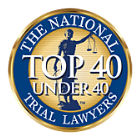5,000+
2,000+
5 Star
Parsonage-Turner Syndrome from Vaccines
Fighting for Vaccine Injury Victims – Get the Compensation You Deserve
Parsonage-Turner is a rare neurological condition linked to vaccine reactions—our attorneys help clients seek compensation through the federal claims program. Parsonage-Turner Syndrome (PTS) is a rare neurological condition that causes sudden, severe pain and muscle weakness in the upper arm and shoulder. Often misunderstood as a routine shoulder injury, PTS is actually a form of brachial neuritis—inflammation of the brachial plexus nerves, which carry nerve signals from the spinal cord to the arms. In rare cases, it may develop after a flu vaccine or other routine vaccination, and is sometimes classified as a vaccine related brachial neuritis.
The Vaccine Injury Compensation Program (VICP) allows individuals with injuries like this to file for compensation—without suing their doctor or entering the traditional legal system. At My Vaccine Lawyer, our Parsonage-Turner Syndrome vaccine injury lawyers help clients deal with the federal process, document their condition, and recover what they’re owed.

Awards and Associations
One of more of our attorneys have been recognized for the following:

Hear Cheryl's Vaccine Injury Story
Cheryl, a former client of My Vaccine Lawyer, shares her experience with Shoulder Injury Related to Vaccine Administration (SIRVA) following a flu shot. She describes the sudden onset of pain, limited shoulder mobility, and a long recovery process that led her to seek legal help from attorney Max Muller.
With his support, Cheryl filed a successful claim through the Vaccine Injury Compensation Program and received a settlement covering her medical expenses, lost wages, and pain and suffering. SIRVA symptoms typically include sudden pain within 48 hours of vaccination, restricted range of motion, and discomfort that can last for weeks or months.
What Is Parsonage-Turner Syndrome—And Why Does It Qualify for Compensation?
Parsonage-Turner Syndrome is not just shoulder pain. It’s a disabling neurological condition caused by inflammation of the brachial plexus—a bundle of nerves that runs from the spinal cord through the upper arm. For many, it begins with sharp pain in the shoulder, followed by sudden muscle weakness, reduced mobility, and in severe cases, even long-term muscle control loss in the affected arm. When PTS appears after vaccine administration, especially in individuals who recently received a flu vaccine, it may qualify as a vaccine injury. The federal government recognizes this condition—typically diagnosed as brachial neuritis—as a compensable outcome in vaccine claims.
How It Happens: Immune Response and Nerve Damage
The leading theory behind post-vaccine PTS is an overactive immune response triggered by the shot itself. The body mistakenly attacks the brachial plexus nerves, damaging the pathways that carry signals from the brain to the muscles. This is why PTS is classified as a rare neurological condition, often resulting in nerve damage, weakness, and sharp burning pain. These adverse reactions are well-documented in federal vaccine claims, especially following certain vaccines.
Common Symptoms That May Point to PTS
People who’ve developed PTS report sharp pain, followed by loss of muscle strength, visible shoulder atrophy, or inability to lift their affected arm. Over time, this leads to decreased range of motion, reduced muscle control, and difficulty performing everyday tasks. These other symptoms often cause confusion during diagnosis, as PTS is sometimes mistaken for routine shoulder injury related to strain or poor posture.
Which Vaccines Are Most Commonly Involved?
While PTS can follow different triggers, we’ve seen it most often after the flu vaccine. Cases have also appeared after vaccination with certain vaccines tied to inflammatory responses. The CDC lists brachial neuritis as a known risk after tetanus-containing vaccines, which are part of many routine immunizations. We’ve represented vaccine injury clients with vaccine reactions and other vaccine injuries who developed sudden pain and weakness within days or weeks of their shots.
Treatment Costs and Why Compensation Matters
PTS can take months—or even years—to recover from. Treatment includes nonsteroidal anti inflammatory drugs, physical therapy, occupational therapy, and sometimes nerve-targeted injections or surgical consultation. In severe cases, where muscle function does not return, patients may face even paralysis or lifelong disability. That’s why accurate diagnosis, early intervention, and legal recognition of the injury matter.
-
Physical therapy: $150–$300/week
-
Occupational therapy: $100–$200/week
-
Long-term medication: $2,000–$5,000/year
-
Missed work during flare-ups: hundreds to thousands in lost wages
-
Ongoing care for chronic weakness: $10,000+ annually in serious cases
These costs are recoverable through the Vaccine Injury Compensation Program. If your condition is linked to a covered vaccine, you may be entitled to compensation for medical expenses, lost wages, and future care.
If you've developed Parsonage-Turner Syndrome after vaccination, our attorneys will help you file a vaccine injury claim and recover compensation through the federal program.
We are the Highest Rated Vaccine Injury Law Firm in the Country!
SEE OUR NOTABLE SETTLEMENTS
See some of our vaccine injury settlements in the VICP.
See Vaccine Settlements Here
MEET MAX
Max is a founding Partner of My Vaccine Lawyer and has been a Super Lawyer for 11 years straight.
Meet Max
MEET PAUL
Paul is a founding Partner at My Vaccine Lawyer and has been featured in the Washington Post and CBS News for his accomplishments.
Meet Paul
Why Parsonage-Turner Syndrome Cases Require Legal Experience
Parsonage-Turner Syndrome (PTS)—often diagnosed clinically as brachial neuritis—is listed on the Vaccine Injury Table for tetanus-containing vaccines like Tdap. If your symptoms developed within the expected time frame after that type of vaccine, your case qualifies as an on-table injury, making the legal process more straightforward. But if you received a vaccine like the flu shot, HPV vaccine, or another non-tetanus product, your case becomes an off-table claim. That means you’ll need medical evidence showing the vaccine likely caused your condition.
At My Vaccine Lawyer, we’ve handled both on-table and off-table brachial nerve injuries, including CRPS and Parsonage-Turner Syndrome. These cases demand deep understanding of vaccine injury law, precise medical coordination, and attention to how symptoms are reported and diagnosed. We've helped secure large cash settlements under the Vaccine Injury Compensation Program, even for rare conditions. When your injury doesn’t fit a perfect mold, experience is what gets your claim across the line.
What You Need to File a Strong Claim
A successful Parsonage-Turner Syndrome claim starts with clear, well-documented medical evidence. This includes your full medical records, proof of recent vaccine administration, and an accurate diagnosis from a neurologist or physician. Timelines are especially important—showing when the symptoms began, how quickly they progressed, and how they’ve affected your ability to work or perform daily tasks. Our team builds your vaccine injury claim so it meets federal requirements under the Vaccine Injury Compensation Program. We handle the legal filing, collect supporting documentation, and represent you through the federal claims process. You focus on recovery—we handle everything else.
If you’ve developed Parsonage-Turner Syndrome after a vaccine, our experienced vaccine attorneys are ready to review your case—schedule your free consultation today.
Speak With A Lawyer Now!
Get a Free Consultation & See What Your Claim Is Worth
Have your case evaluated directly from one of our vaccine lawyers.
The Legal Process for Vaccine Injury Cases
Vaccine injury cases follow a unique legal process. Since these claims are handled under the VICP, they require an attorney with experience in federal vaccine litigation. At My Vaccine Lawyer, we start with a free consultation to assess your claim. We then gather medical records, expert testimony, and supporting evidence to build a strong case. If a fair settlement isn’t offered, we are prepared to take your case to trial.
1. Contact Your Doctor
If you suffered a vaccine-related injury, adverse effects or worsening symptoms, call your doctor immediately.
Still Have Questions?
-
Is Parsonage-Turner Syndrome the same as a brachial neuritis vaccine injury?
Yes—Parsonage-Turner Syndrome (PTS) is often clinically diagnosed as brachial neuritis, especially when the condition involves sudden nerve pain and weakness in the upper arm. When symptoms follow a tetanus-containing vaccine, it may qualify as an on-table brachial neuritis vaccine injury.
-
What if I developed brachial neuritis after a flu vaccine instead of a tetanus shot?
If you’ve developed brachial neuritis after a non-tetanus vaccine—like the flu vaccine—you may still have a case, but it would be treated as an off-table injury. This requires more detailed medical evidence and expert support, which our team is highly experienced in handling.
-
How does PTS affect a person’s daily life long-term?
PTS affects nerve function in the shoulder and upper arm, often causing chronic weakness, pain, and reduced range of motion. These effects can interfere with everyday tasks, job duties, and physical independence—making it a serious and lasting example of vaccine related injuries.
-
What kinds of evidence are needed for a PTS claim?
The strongest claims include detailed medical records, timeline documentation, and clinical confirmation of brachial neuropathy or nerve dysfunction. We also evaluate specific factors like symptom onset, your vaccination history, and how the injury progressed over time.
-
Is the cause of PTS after vaccination confirmed?
The exact cause of PTS following vaccination isn’t fully understood, but the medical community has acknowledged that it may result from an autoimmune response. That’s why it’s included in national vaccine injury compensation discussions and considered a valid reaction when supported by evidence of adverse effects.
Recent Blogs
How Long Do Flu Shot Side Effects Last?
Paul Brazil: Jan 22, 2026
What is the NCVIA?
Paul Brazil: Nov 10, 2025
Frozen Shoulder After Vaccine
Max Muller: Nov 5, 2025